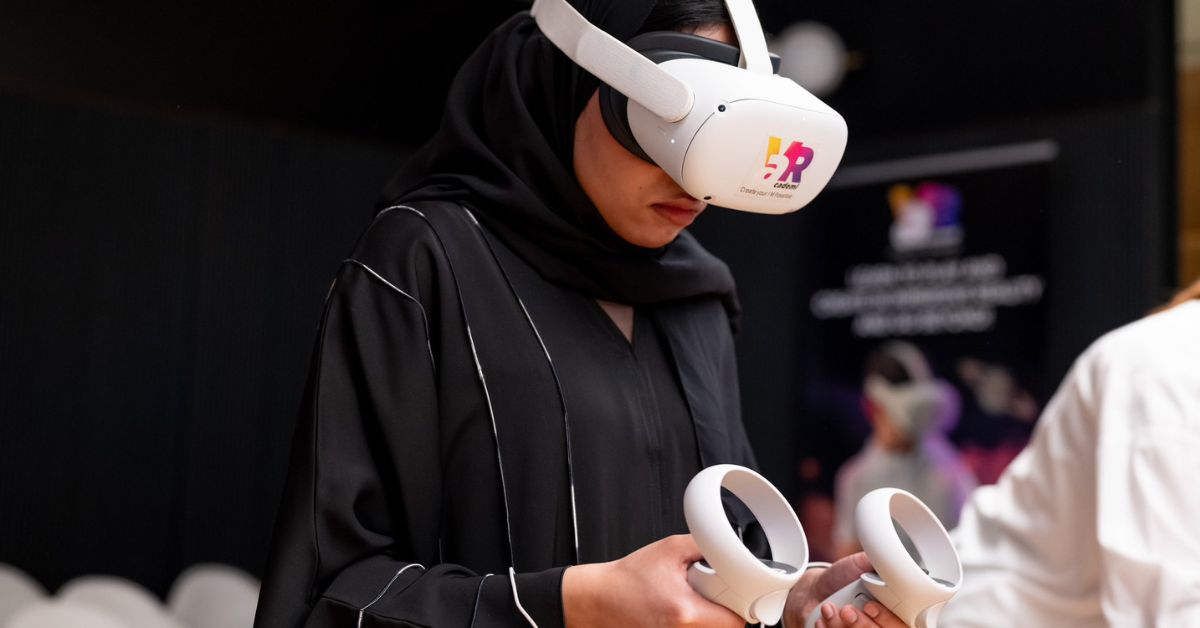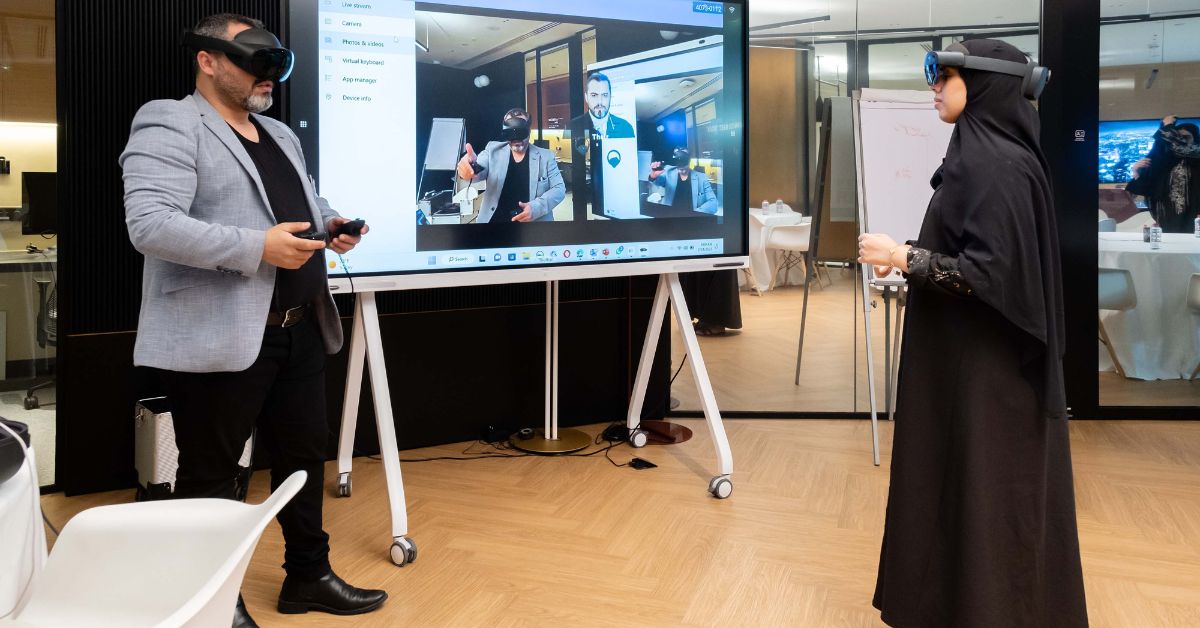DUBAI, UAE — The Augmented and Virtual Reality (AR and VR) market in the GCC region is poised to surge, with an expected Compound Annual Growth Rate (CAGR) of nearly 39 percent from 2023 to 2028, according to a research report by MarkNTel.
The adoption of Extended Reality (XR) technologies — an umbrella term encompassing AR, VR, and Mixed Reality (MR) — is rapidly accelerating, albeit with relatively limited precise market value figures available for the GCC region.
XR technologies are leaving their mark across a plethora of GCC-based sectors, with notable expansions in academic, entertainment, gaming, and training industries. The use of XR for remote work, powered by cloud computing technology, saw a significant rise following the COVID-19 pandemic.
The global XR market, as reported by Precedence Research, stood at US$ 35.14 billion in 2022 and is projected to skyrocket to approximately US$ 345.9 billion by 2030, boasting a CAGR of 33.09 percent from 2022 to 2030.
The AR market commanded a robust 55 percent of the global market share in 2021, while advancements in software development from 2022 to 2030 suggest a promising future for VR, the report said.
Decoding the technology
XR technologies create immersive experiences by melding virtual elements with the “real” world, thereby enhancing our perception of reality. These technologies find applications in diverse sectors such as retail, where customers can virtually ‘try before they buy’.
Fashion retailers, for instance, can develop apps that allow customers to try on clothes virtually, and furniture businesses can offer apps to arrange furniture in a room before purchase.
“Mobiles are there, people are using mobiles, and everyone uses Google and Apple services, so why not provide them when with an option that, within a tab, can solve a big problem for them,” said Raed Mikail, Founder and CEO of AVR Labs.

Remote work is made more feasible with XR technologies, connecting employees across the globe in a way that feels as if they’re in the same room. The real estate sector can also benefit as potential buyers or tenants can virtually “walk through” properties from anywhere, making transactions more convenient.
AR and VR technologies are gaining traction in the GCC region’s gaming sector, with developers exploring these technologies to create more immersive worlds for players. Success stories of games like Fortnite and Pokemon Go have increased the technology’s acceptance and awareness of its potential uses in sectors such as tourism, healthcare, and education.
Future vision
Mikail said the full benefits of XR technologies and the metaverse are yet to be seen and promises a future that is “nothing short of marvelous”.
“If customers want to see a design for materials or architect, they would see normal images or 3D designs, and this had been the case for the past 20 to 30 years. But with reality technologies, any designer can convert this into a virtual reality experience to give the people who want to build that actual place the feeling of presence in that future space,” he said.
Mikail said that there won’t be a place for images and videos in the future since you can see them on the spot. “This is one of the missions AVR labs is working on, he added.
AVR Labs has recently launched software enabling designers to convert normal images or 3D designs into virtual reality experiences, providing an immersive preview of future spaces.
Despite previous challenges and high costs associated with implementing AR and VR in businesses, solutions are emerging. AVR Labs have bridged the gap between these technologies and retailers, enabling them to create immersive product experiences in seconds, at affordable prices of under US$ 1, according to Mikail.
Overcoming challenges
AVR Labs have identified significant gaps in the architecture and interior design sectors and the burgeoning e-commerce industry, and have focused their efforts on these areas. In collaboration with AI companies, they are developing an experience that allows users to generate AR experiences from product images, resulting in a Branded QR code, Dedicated URL, and I-frame for their website.
Adoption of new technologies in the GCC region is relatively easier than in other parts of the world, according to Mikail. He attributes this ease of adoption to the high concentration of technology professionals in Dubai and the region’s government initiatives encouraging technology use.
However, Mikail said that widespread adoption of XR technologies will take place once the necessary hardware becomes more accessible, a development expected in the next couple of years. As tech giants race to produce hardware such as AR or VR glasses, it’s evident that the era of the metaverse is fast approaching.
This ongoing growth and adoption of XR technologies present exciting opportunities for businesses, developers, and consumers alike, promising a future where the lines between the virtual and the physical continue to blur.

